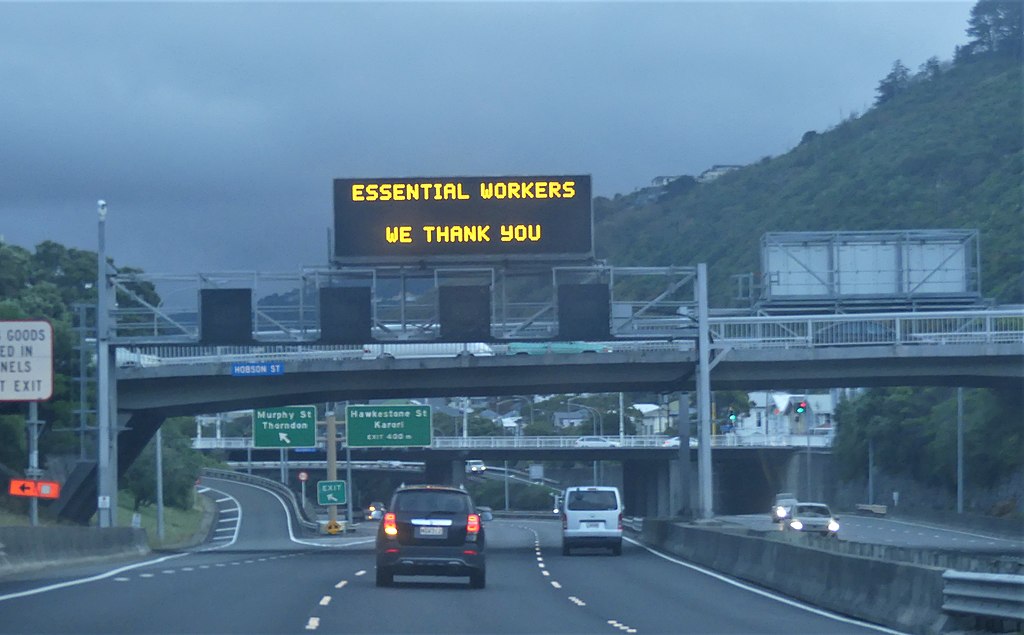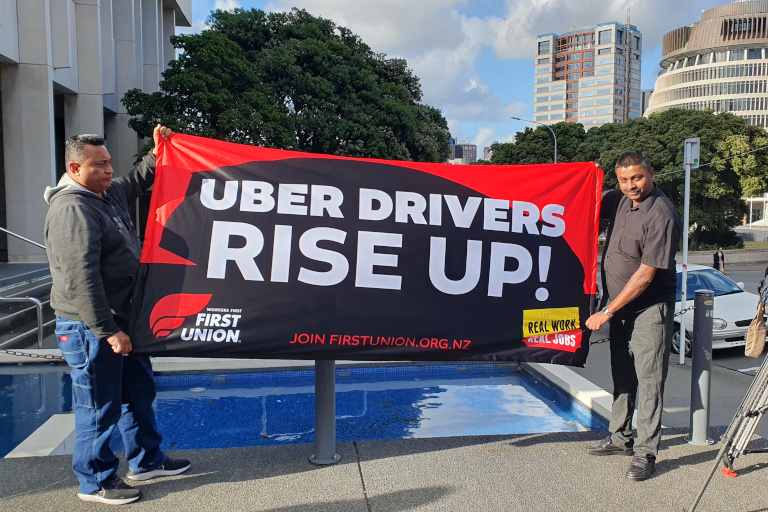For many New Zealanders, Waitangi Day is a time to celebrate the founding of New Zealand, a nation which we are taught to believe is born of a union of two peoples, Maori and Pakeha – “He iwi tahi tatou”. This national myth serves to obscure the true character of the treaty and the colonial state that it established. Far from being an idealistic union of two people, the founding of modern New Zealand was born of the bloody theft of land and resources; modern New Zealand and its wealth is built on the ruins of a pre-existing Maori society that had to be torn apart before space could be created for capitalism to supersede it.
The marginalisation of Maori, the imposition of colonial occupation and the growth of New Zealand capitalism are all intimately connected and as a consequence, New Zealand has inherited from its inception the structures and systems of a racist society.
Racism serves a special role in all capitalist societies. Racism as we know it has never existed in Europe or any other part of the world prior to the advent of capitalism. In order for early capitalist industries in the West to develop, raw materials and labour had to be appropriated or stolen. Thus it is no coincidence that the rapid growth of capitalism went hand in hand with rampant colonialism and the largest and most brutal slave trade that ever existed in the history of humankind – the pillage of Africa. To justify the theft, slaughter and oppression that was required for the spread of capitalism, the crude biological version of racism that came into existence; the idea that Europeans were biologically superior to non-white people and that the latter were fit to be exterminated and exploited was one that fitted well with the needs of a rapidly expanding capitalist economy. The ruling class haven’t appealed to biology all that much since World War Two. Rather it is “cultural” racism we live with today.
New Zealand has inherited from its colonial roots a state that is built for the purpose of oppressing an indigenous society and the systemic marginalisation of Maori people. Consider for example New Zealand’s prison population; while Maori make up some 15% of New Zealand’s total population they make up 50% of New Zealand’s male prison population and 60% of the country’s female prison population. Other statistics for health, education and standard of living show that Maori bear a disproportionate and enduring burden of poverty and disenfranchisement. While racist attitudes can be observed as playing their role in this catastrophe, they themselves are a part of a state which exists to systemically strip Maori people of their wealth, mana and self-determination.
In New Zealand, racism also provides the capitalist ruling class with convenient scapegoats. In 2004, Don Brash the then leader of the opposition National party made a speech at the Orewa Rotary Club, where he essentially accused Maori people of stealing from society. This claim is patently absurd, but its coverage in the national media led to National making significant gains in the polls. The hypocrisy of a wealthy capitalist accusing a people who have been systematically robbed and oppressed in their own land is rich to say the least; however the formula of the wealthy pointing the finger at the poor serves its purpose in dividing the working class. When Pakeha workers point the finger at Maori and accuse them of stealing from them, they overlook the fact that the real thieves are those who grow rich every day on the backs of ordinary workers. Racism allows bosses, capitalists and the wealthy to shield themselves and obscure the nature of how they get their wealth and power.
New Zealand’s political tradition of blaming the weak and disenfranchised also finds expression in beneficiary bashing which is another example of fat cats telling workers to blame the most powerless sections of the working class for problems in the capitalist economy; an economy that for all its problems, never fails to keep the capitalists rich. It also finds expression in anti-Asian racism, which along with anti-Maori racism, has a long political tradition in New Zealand. Today, Asians are accused of providing cheap labour that undermines the job security of ‘Kiwi’ workers. It seems to be lost on many people that Asians are not the ones who determine how cheap their labour is! Wages and working conditions are set by the capitalists who own the means of production. By accusing Asians of stealing jobs, capitalists set worker against worker and ensure that Pakeha, Maori, Pasifika and Asian workers are made to compete with each other in accepting the lowest wages and working conditions. If Asian labour is used to undermine the job security of others, it is because the capitalists desire it so and the real solution is not to blame the Asian workers themselves, but to demand better wages, more jobs, better conditions and job security for all workers, regardless of their race.
Racism is an excellent tool for reducing the collective power of the working class. If workers squabble among themselves and blame each other for the problems caused by the ruling class, then the ruling class is able to protect itself from the threat of a united workers movement to overthrow them. In New Zealand as in every capitalist society, racism is used to weaken and divide the working class. New Zealand’s colonial history has meant that the struggle against colonialism and racism is intrinsically linked to the struggle to rip out the roots of capitalism in this country. Justice for tangata whenua will not come about until the state that has been designed to systemically oppress them is smashed forever. Justice for immigrants and all workers regardless of racial background or nationality also lies on this hope; that the workers of the world can unite against their real class enemies. Workers in New Zealand, especially Pakeha workers need to realise that they have nothing to gain from pointing the finger of blame at those who are even more powerless than they. The mark of a successful parasite is that it can exploit its host and go unnoticed; while workers of all races in New Zealand and around the world suffer from the crippling effects of economic recession, Capitalists flourish and rake in record profits. A united working class is strong and powerful a divided class is weak and directionless.









